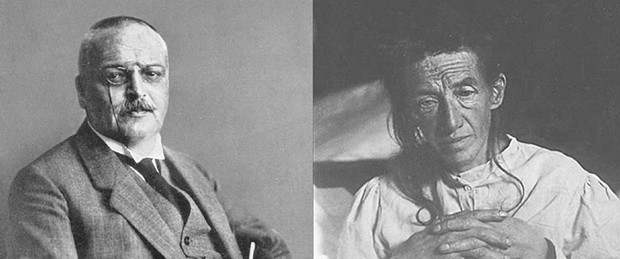[
{
"name": "Top Stories Video Pair",
"insertPoint": "7",
"component": "17087298",
"parentWrapperClass": "fdn-ads-inline-content-block",
"requiredCountToDisplay": "1"
}
]
All animals with brains sleep. Why? In humans, at first blush it seems like a perfect waste of time for us to spend a third of our lives in somnolent inactivity. If I could have harvested all those apparently useless hours, I'd be the equivalent of 108 instead of my youthful 72! And anyway, sleep is dangerous — more so to our Paleolithic ancestors, at the mercy of hungry carnivores, than to ourselves. What possible evolutionary function could have been more important than staying alert for sabertooth tigers in the night?
No one has come up with a single, definitive answer. Dr. William Dement, founder of the Stanford University Sleep Research Center, summed up 50 years of research thus: "As far as I know, the only reason we need to sleep that is really, really solid is because we get sleepy."
One possibility: We sleep to consolidate our memories. (Objection: Is remembering what happened yesterday really more important than preserving us from nocturnal leopards?) Or, perhaps: We sleep to reduce the brain's drain on the body's limited resources of energy. Processing our sensory input burns calories — which our ancestors obtained by day from hunting and gathering — so they conserved that energy by "switching off" their senses at night. (Same objection: Surely it's better to burn some energy to stay awake and alert than to be eaten.)
A promising line of research, outlined in several studies published in the last two years, suggests: We sleep to clear our brains of toxic metabolic byproducts. This is analogous to how the body's lymphatic system flushes toxic waste from muscle cells after strenuous activity. Our hard-working brains (which consume 20 percent of bodily energy) use a similar cleansing arrangement, dubbed the "glymphatic system" (after the brain's glial cells). When we sleep, the glymphatic system goes to work with cerebrospinal fluid, flushing our brains of waste products which accumulate while we're awake. More prosaically, sleep gives our late-night cleaners the space to do essential "brainwashing" janitorial work.
"We" at this point includes our fellow mammals, lab rats; human studies are still in the future. However, this tentative theory looks sufficiently promising to bring up the question, What damage are we doing to ourselves by shortening our sleeping time? (We sleep an hour or two less per night, on average, compared with 100 years ago.) Toxic byproducts cleared while we sleep include the beta-amyloid and tau proteins found in patients with degenerative brain diseases such as Alzheimer's and Parkinson's. According to University of Pennsylvania sleep researcher Dr. Sigrid Veasey, "If we don't sleep well, we may be allowing the very things that cause neural degeneration to pile up unchecked ... we may be doing irreparable damage to the brain..."
And while a causal relationship between less sleep and Alzheimer's is far from proven, you might at least consider heading to bed (perchance to dream) rather than watching The Late Show.
Barry Evans ([email protected]) is heading to the sofa to flush out his brain after working on this column. You can head to local booksellers to find anthologies of five years of Field Notes.
Comments (2)
Showing 1-2 of 2
more from the author
-
The Myth of the Lone Genius
- Jun 6, 2024
-
mRNA Vaccines vs. the Pandemic
- May 23, 2024
-
Doubting Shakespeare, Part 3: Whodunnit?
- May 9, 2024
- More »


































